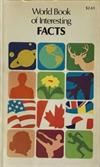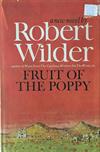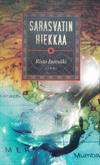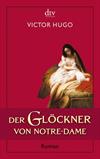
An Artist of the Floating World
Registered by cluricaune of Armagh, Co. Armagh United Kingdom on 5/28/2007
 This Book is Currently in the Wild!
This Book is Currently in the Wild!
 This Book is Currently in the Wild!
This Book is Currently in the Wild!
2 journalers for this copy...
Kazuo Ishiguro was born in Nagasaki in 1954 and moved to Britain at the age of five. He was awarded the OBE in 1995 and the Chevalier de l'Ordre des Arts et des Lettres in 1998. "An Artist of the Floating World" is his second novel, was first published in 1986 and won that year's Whitbread Prize.
"An Artist of the Floating World" opens in October 1948, and is set in post-World War II Japan. The story is told by Masuji Ono, a retired artist and - once - a man of some influence and renown. His wife and son died during the war, though both his daughters survived - one is married, with a son, while Ono is conducting negotiations for his other's marraige. Over the course of the book, Ono looks back over his life and tries to deal with how his home city and the attitudes of the people around him are changing. His own career began on the workshop of Mister Moriyama, before he moved to the studio of Master Takeda - one who favoured painting the 'floating world', as the pleasure districts were known. Finally, Ono worked with Chishu Matsuda in producing artistic propoganda - which led to his position of influence leading up to and during the war. Now, in the post-war years, he notices how his own once great reputation has faltered and how attitudes towards him and his paintings have changed. There are many, for example, from the younger generations who hold him at least partly responsible for Japan's misguided foreign policy.These changes in attitude are being mirrored by the physical changes of the city. With the post-war rebuilding, whole districts are now becoming unrecognizable - Ono's own favourite 'pleasure district' is changing in this way. These changes in attitude and in the city lead Ono to look back over his life and try to come to terms with how he has lived it.
"An Artist of the Floating World" was an excellent book, though a little sad in places. Ono himself seems a somewhat sad at how his home city is changing - partly due to the damage caused by the war, partly in the name of 'progress'. In fact, I couldn't help feeling a little sad at the loss of Ono's 'pleasure district' myself. Ono, on the other hand, doesn't quite change enough : he acknowledges his role to a point, though doesn't show any real sorrow for how things turned out. (His comments, that he "acted on what he believed and did [his] utmost" actually reminded me of Tony Blair - who has made any number of bad decisions in "good faith"). There were one or two points I'd have liked more information on - particularly his relationship with an ex-pupil called Kuroda. I'm not too surprised, however, that Ono avoided this topic as much as possible, though. For Ono to have dwelt on that topic may have caused him to discover something about himself he didn't like.
"An Artist of the Floating World" opens in October 1948, and is set in post-World War II Japan. The story is told by Masuji Ono, a retired artist and - once - a man of some influence and renown. His wife and son died during the war, though both his daughters survived - one is married, with a son, while Ono is conducting negotiations for his other's marraige. Over the course of the book, Ono looks back over his life and tries to deal with how his home city and the attitudes of the people around him are changing. His own career began on the workshop of Mister Moriyama, before he moved to the studio of Master Takeda - one who favoured painting the 'floating world', as the pleasure districts were known. Finally, Ono worked with Chishu Matsuda in producing artistic propoganda - which led to his position of influence leading up to and during the war. Now, in the post-war years, he notices how his own once great reputation has faltered and how attitudes towards him and his paintings have changed. There are many, for example, from the younger generations who hold him at least partly responsible for Japan's misguided foreign policy.These changes in attitude are being mirrored by the physical changes of the city. With the post-war rebuilding, whole districts are now becoming unrecognizable - Ono's own favourite 'pleasure district' is changing in this way. These changes in attitude and in the city lead Ono to look back over his life and try to come to terms with how he has lived it.
"An Artist of the Floating World" was an excellent book, though a little sad in places. Ono himself seems a somewhat sad at how his home city is changing - partly due to the damage caused by the war, partly in the name of 'progress'. In fact, I couldn't help feeling a little sad at the loss of Ono's 'pleasure district' myself. Ono, on the other hand, doesn't quite change enough : he acknowledges his role to a point, though doesn't show any real sorrow for how things turned out. (His comments, that he "acted on what he believed and did [his] utmost" actually reminded me of Tony Blair - who has made any number of bad decisions in "good faith"). There were one or two points I'd have liked more information on - particularly his relationship with an ex-pupil called Kuroda. I'm not too surprised, however, that Ono avoided this topic as much as possible, though. For Ono to have dwelt on that topic may have caused him to discover something about himself he didn't like.
Journal Entry 2 by cluricaune at Common Grounds Cafe in Belfast, Co. Antrim United Kingdom on Tuesday, June 12, 2007
Released 16 yrs ago (6/12/2007 UTC) at Common Grounds Cafe in Belfast, Co. Antrim United Kingdom
WILD RELEASE NOTES:
RELEASE NOTES:
Released at tonight's meetup.
Released at tonight's meetup.
Caught at the June 2007 Belfast meetup.
I found this to be a really enjoyable style of writing. An interesting look at the effects of politics and contemporary events on art.
I found this to be a really enjoyable style of writing. An interesting look at the effects of politics and contemporary events on art.
Released 16 yrs ago (7/1/2007 UTC) at
WILD RELEASE NOTES:
RELEASE NOTES:










